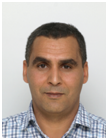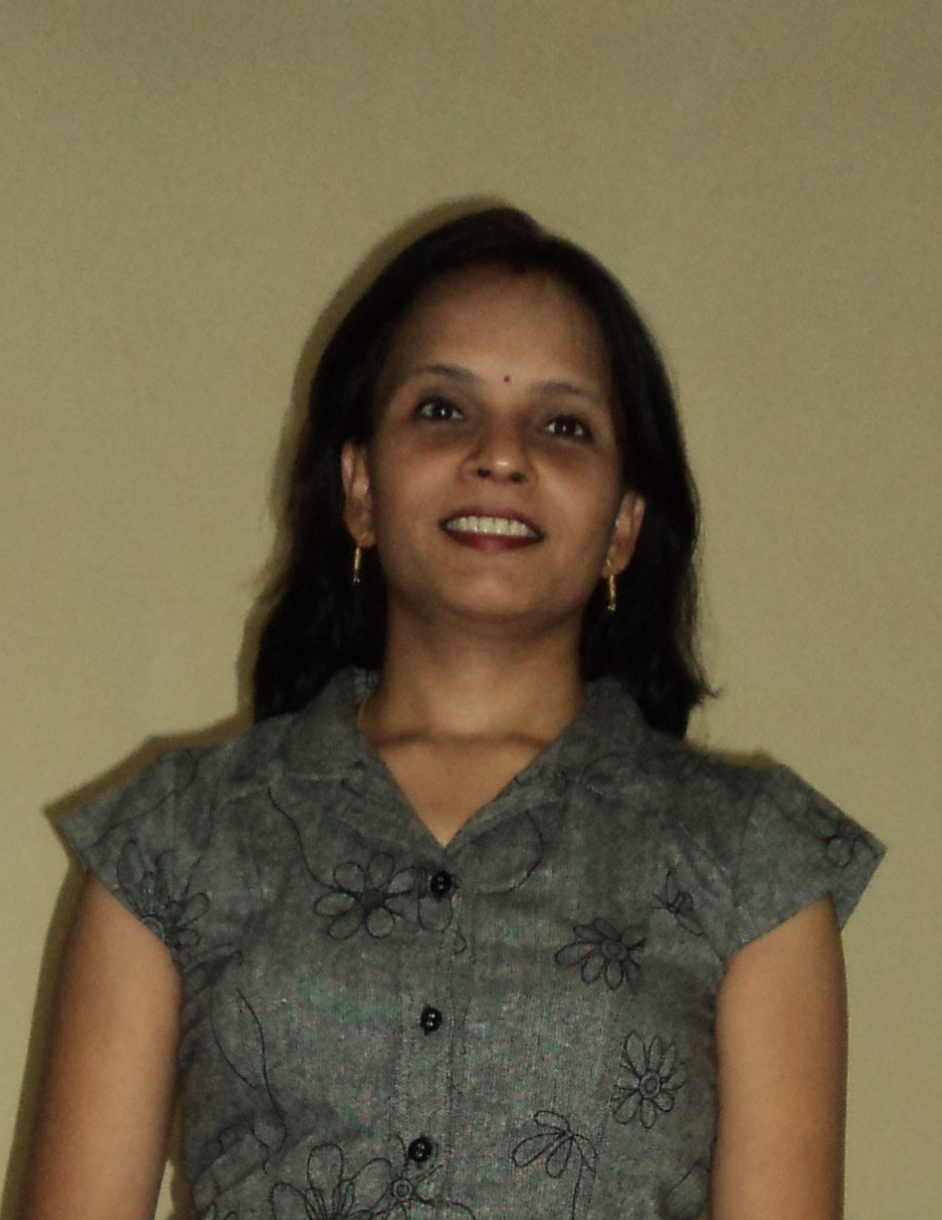
|
|
|
Keynote Speakers********************Keynote Academic Speakers**************************
------------------------------------------------------------------------------------------------------------------------------ Title: Cloud Architecture of Soft Skills based on Deep Learning Abstract: Nowadays, Soft skills remain a very important area for the development and the construction of society which represents a fundamental challenge for universities. They mainly aim to become an organization capable of providing human capital for the development of countries either at the level of research or creation, especially in the field of industry. In this sense, universities should have academic, relevant, adequate, practical and appropriate programs which facilitate students' access to the world of work which requires a high level of soft skills; namely, critical thinking, problem solving, leadership, professionalism / work ethic, teamwork / collaboration and adaptability / flexibility. Our objective in this conference is to provide a supervised, iterative and intra-recursive architecture in terms of learning loops, and multi-hybrid in terms of deployment. Its aim is to complete the spirit of self-training of the learner based on beneficial analysis and detection, improvement and development of its technical and non-technical skills, regardless of physical constraints (handicap or different learning styles), called Soft Skills Cloud Architecture based on Deep Learning "ACSS". It is defined by sex main phases. 1) Initialing phase, 2) Planning or creation phase of a reference basis which makes it possible to define the most important skills demanded in the job market, 3) Skills detection phase, 4) Skills classification phase, 5) Decision phase and 6) Implementation phase. In addition, our diagram presents a supervised orientation process in which the learner can, in each phase, consult the different means and methods of improvement, thus, it offers the advantage of self-evolution. ------------------------------------------------------------------------------------------------------------------------------ Title: Blockchain-based IoT Platforms for smart Farming Systems Abstract: Recent advances in pervasive technologies, such as wireless ad hoc networks and wearable sensor devices, allow the connection of everyday things to the Internet, commonly denoted as Internet of Things (IoT). IoT is seen as an enabler to the development of intelligent and context-aware services and applications. These services could dynamically react to the environment changes and users’ preferences. The main aim is to make users’ life more comfortable according to their locations, current requirements, and on-going activities. However, handling dynamic and frequent context changes is a difficult task without a real-time event/data acquisition and processing platform. Big data, WSN, and IoT technologies have been recently proposed for timely gathering and analysing information (i.e., data, events) streams. In this talk, we shed more light on the potential of these technologies for continuous and real-time data monitoring and processing in different real-case applications (e.g, Healthcare, energy efficient building, smart grid).
------------------------------------------------------------------------------------------------------------------------------
Title: Threat Intelligence and Machine Learning: A Powerful Combination for Cybersecurity Abstract: Machine learning and threat intelligence combined provide a potent cybersecurity tool. While unstructured data can be analyzed with machine learning, threat intelligence entails gathering and evaluating data to foresee new assaults. Additionally, risk exposure assessment, alert management, raw data analysis, and cyber threat intelligence can all benefit from machine learning. It is imperative that each customer concentrates on the threat landscape that pertains to them, as the majority of the threat landscape is unimportant to most firms. By automatically generating a customized threat profile and making it easier for analysts to enrich that threat profile by providing them with AI-based natural language processing capabilities, the threat environment may be made more personalized. The question of whether open-source intelligence can be successfully incorporated into a practical method that reliably categorizes cyber threat intelligence can also be answered using machine learning. Machine learning and rule-based algorithms are used in the processing pipeline of the threat intelligence machine to convert unstructured data from open, technical sources into organized, useful intelligence. To strengthen cybersecurity, machine learning can also be utilized to visualize trends in CTI data. In summary, this speech discusses how threat intelligence and machine learning together can offer a strong basis for artificial intelligence (AI) solutions that can safeguard companies from online attacks. ------------------------------------------------------------------------------------------------------------------------------ He is serving as Vice President, Systems Science and Engineering (SSE) (2023-), a member-at-large of the Board of Governors (2022-), and a co-chair (2006-) of the technical committee of Distributed Intelligent Systems of IEEE Systems, Man and Cybernetics (SMC) Society (SMCS), SMCS Primary Representative, IEEE Systems Council, Editor-in-Chief of IEEE SMC Magazine (2022), Associate Editor (AE) of IEEE Transactions on SMC: Systems (2018-),IEEE Transactions on Computational Social Systems(2018-), Frontiers of Computer Science (2021-), and IEEE Canada Review (2017-). He was AE of IEEE SMC Magazine (2015-2021), Associate Vice President (AVP), SSE (2021), IEEE SMCS, a Conference (Co-)Chair and Program (Co-)Chair for many international conferences, and a PC member for 150+ academic conferences. Title: E-CARGO/RBC: A High-Level Computational Model/Methodology for the Complex World in the AI Time Abstract: In the AI (Artificial Intelligence) time, many AI tools, such as LLMs (Large Language Models), can help people accomplish many low-level intelligent tasks, such as coding and programming. Many low-level coding jobs have high potential to be replaced by such LLMs. Traditional Programmers need to master powerful high-level modelling tools to meet these new challenges. E-CARGO/RBC (Environments - Classes, Agents, Roles, Groups, and Objects /Role-Based Collaboration) is such a modelling methodology, which helps people deal with complex problems by designing systematic strategies other than using low level programming skills. RBC is a computational methodology that uses roles as the primary underlying mechanism to facilitate collaboration activities. It consists of a set of concepts, principles, models, processes, and algorithms. RBC and its E-CARGO model have been developed to a powerful tool for investigating collaboration and complex systems. Related research has brought and will bring in exciting improvements to the development, evaluation, and management of systems including collaboration, services, clouds, productions, and administration systems. RBC and E-CARGO grow gradually into a strong fundamental methodology and model for exploring solutions to problems of complex systems including Collective Intelligence, Sensor Networking, Scheduling, Smart Cities, Internet of Things, Cyber-Physical Systems, and Social Simulation Systems. E-CARGO assists scientists and engineering to formalize abstract problems, which originally are taken as complex problems, and finally points out solutions to such problems including programming. The E-CARGO model possesses all the preferred properties of a computational model. It has been verified by formalizing and solving significant problems in collaboration and complex systems, e.g., Group Role Assignment (GRA). With the help of E-CARGO, the methodology of RBC can be applied to solve various real-world problems. E-CARGO itself can be extended to formalize abstract problems as innovative investigations in research. On the other hand, the details of E-CARGO components are still open for renovations for specific fields to make the model easily applied. For example, in programming, we need to specify the primitive elements for each component of E-CARGO. When these primitive elements are well-specified, a new type of modelling/programming language can be developed and applied to solve general problems with software design and implementations. In this talk, the speaker examines the requirement of research on collaboration systems and technologies, discusses RBC and its model E-CARGO; reviews the related research achievements on RBC and E-CARGO in the past years; illustrates those problems that have not yet been solved satisfactorily; presents the fundamental methods to conduct research related to RBC and E-CRAGO and discover related problems; and analyzes their connections with other cutting-edge fields. This talk aims to inform the audience that E-CARGO is a well-developed model and has been investigated and applied in many ways. The speaker welcomes queries, reviews, studies, applications, and criticisms. As case studies of E-CARGO, GRA and its related problem models are inspired by delving into the details of the E-CARGO components and the RBC process. GRA can help solve related collaboration problems with the help of programming and optimization platforms. All the related Java codes can be downloaded by GitHub: https://github.com/haibinnipissing/E-CARGO-Codes. The speaker welcomes interested researchers and practitioners to use these codes in their research and practice and contact the speaker if there are any questions about them. ------------------------------------------------------------------------------------------------------------------------------
Title: Reliability analysis of safety critical systems Abstract: Much attention has been given to measure the reliability of safety critical systems (SCSs), assuming that components fail independently. However, in practice, dependent failures of components due to come common cause play a significant role in determining system reliabilities and hence can measure the risk more accurately. In this talk, I shall discuss a method to measure such dependent failures systematically, known as common cause failures (CCFs). ------------------------------------------------------------------------------------------------------------------------------
Title: Challenges in the Next Generation of IoT-based Smart Systems and a Case Study Abstract: Artificial Intelligence (AI), big data analytics and the Internet of Things (IoT) are the three key pillars of the next generation cyber-physical systems. Cyber-physical systems (CPS) refer to novel hardware and software compositions creating smart, autonomously acting devices, enabling efficient end-to-end workflows and new forms of user-machine interaction. This talk will firstly present the key challenges that the future IoT-based systems are facing and then discuss the possible solutions and the critical technologies that need to be involved. As a case study, we are going to discuss a new generation of resilient Cyber Physical Systems, namely Context-Active Resilient CPS, which we developed recently. Context-Active Resilience is a new level of resilience, which has not been targeted by previous work. We aim to develop a novel approach to context-active resilience in CPS, which ensures the best matching and optimal functions and QoS of the CPS in real-time during the running of the CPS. ------------------------------------------------------------------------------------------------------------------------------
Title: The Era of Large Language Models Abstract: Large Language Models (LLMs) have emerged as one of the most significant advancements in artificial intelligence and natural language processing. These models are trained on vast datasets to understand and generate human-like text. They analyze patterns in language, enabling them to perform various tasks, such as text completion, translation, summarization, and even complex question-answering. One of the key features of LLMs is their ability to generate coherent and contextually relevant responses. By leveraging architectures like transformers, they can capture the nuances of language and understand context, which allows them to produce high-quality text that often mimics human writing. This capability opens up numerous applications across various fields, including customer service (through chatbots), content creation, education, and even programming assistance. However, LLMs are not without challenges. Issues such as bias in training data, the potential for generating misleading or harmful information, and concerns around privacy and security are critical considerations. Researchers and developers are actively working on strategies to mitigate these concerns, such as fine-tuning models, implementing better filtering mechanisms, and establishing ethical guidelines. The future of LLMs looks promising, with ongoing improvements in algorithms and computing power. As technology evolves, we can expect even more sophisticated applications that harness the power of LLMs, making them an integral part of our daily interactions with technology.
*************************Keynote Industrial Speakers***************************
|
 Professor ASIMI Ahmed is a full professor at the Faculty of Science, Agadir, Morocco. He received his Ph.D degree in Number theory from Department of Mathematics, Faculty of Science, University Mohammed V, Agdal in 2001, Morocco. He is reviewer at the International Journal of Network Security (IJNS). His main areas of research interests include Number theory, Code theory, Computer Cryptology, Computer and Network Security.
Professor ASIMI Ahmed is a full professor at the Faculty of Science, Agadir, Morocco. He received his Ph.D degree in Number theory from Department of Mathematics, Faculty of Science, University Mohammed V, Agdal in 2001, Morocco. He is reviewer at the International Journal of Network Security (IJNS). His main areas of research interests include Number theory, Code theory, Computer Cryptology, Computer and Network Security. Professor Mohamed BAKHOUYA is a professor of computer science at the International University of Rabat. He obtained his HDR from UHA-France in 2013 and his PhD from UTBM-France in 2005. He has more than ten years experiences in participating and working in sponsored ICT projects. He was EiC of IJARAS journal and also serves as a guest editor of a number of international journals, e.g.,ACM Trans. on Autonomous and Adaptive Systems, Product Development Journal, Concurrency and Computation: Practice and Experience, FGCS, and MICRO. He has published several papers in international journals, books, and conferences. His research interests include various aspects related to the design, validation, and implementation of distributed and adaptive systems, architectures, and protocols.
Professor Mohamed BAKHOUYA is a professor of computer science at the International University of Rabat. He obtained his HDR from UHA-France in 2013 and his PhD from UTBM-France in 2005. He has more than ten years experiences in participating and working in sponsored ICT projects. He was EiC of IJARAS journal and also serves as a guest editor of a number of international journals, e.g.,ACM Trans. on Autonomous and Adaptive Systems, Product Development Journal, Concurrency and Computation: Practice and Experience, FGCS, and MICRO. He has published several papers in international journals, books, and conferences. His research interests include various aspects related to the design, validation, and implementation of distributed and adaptive systems, architectures, and protocols. Dr. Hamed Taherdoost is faculty member of University Canada West. He holds PhD of Computer Science and Master of Information Security. He has over 20 years of experience in both industry and academic sectors. He has worked at international companies from Cyprus, the UK, Malta, Iran, Malaysia, and Canada and has been highly involved in development of several projects in different industries including oil and gas, healthcare, transportation, and information technology, holding positions as varied as Project Manager, R&D Manager, Tech Lead, and CTO. He has spent the last nine years helping start-ups to grow by implementing new projects and business lines. Apart from his experience in industry, he also has some achievements in academia. He has been a lecturer in three different parts of the world, Southeast Asia, the Middle East, and North America. Besides, he has organized and chaired numerous workshops, conferences, and conference sessions respectively, and has delivered speeches as chief guest and keynote speaker. Moreover, he is the editorial, reviewer, and advisory board member of some authentic peer-reviewed journals publishing with Taylor & Francis, Springer, Emerald, Elsevier, MDPI, EAI, & IGI Publishing, and Inderscience. Hamed has been an active multidisciplinary researcher and R&D specialist involved in several academic and industrial research projects. He has been working with researchers from various disciplines and has been actively engaged in different research studies. His research achievements also include winning several best paper awards and outstanding reviewer awards. His views on science and technology have been published in top-ranked scientific publishers such as Elsevier, Springer, Emerald, IEEE, IGI Global, Inderscience, Taylor and Francis and Dr. Hamed has published over 160 scientific articles in authentic peer-reviewed international journals and conference proceedings (h-index = 31; i10-index = 52; May 2022), ten book chapters as well as eight books in the field of technology and research methodology. He was the finalist for the Innovation in Teaching of Research Methodology Excellence Awards at ECRM, UK in 2022 and was nominated as the finalists in Southeast Asian Startup Awards in 2020 by Global Startup Awards and has been listed on the Stanford-Elsevier list of World’s top 2% of scientist by August 2021. He is a Certified Cyber Security Professional and Certified Graduate Technologist. He is senior member of IEEE, IAEEEE, IASED, and IEDRC and WGM of IFIP TC11 - Assurance and Information Security Management, and member of CSIAC), ACT-IAC, and AASHE. Currently, he is involved in several multidisciplinary research projects, including studying innovation in information technology, blockchain and cybersecurity, and technology acceptance.
Dr. Hamed Taherdoost is faculty member of University Canada West. He holds PhD of Computer Science and Master of Information Security. He has over 20 years of experience in both industry and academic sectors. He has worked at international companies from Cyprus, the UK, Malta, Iran, Malaysia, and Canada and has been highly involved in development of several projects in different industries including oil and gas, healthcare, transportation, and information technology, holding positions as varied as Project Manager, R&D Manager, Tech Lead, and CTO. He has spent the last nine years helping start-ups to grow by implementing new projects and business lines. Apart from his experience in industry, he also has some achievements in academia. He has been a lecturer in three different parts of the world, Southeast Asia, the Middle East, and North America. Besides, he has organized and chaired numerous workshops, conferences, and conference sessions respectively, and has delivered speeches as chief guest and keynote speaker. Moreover, he is the editorial, reviewer, and advisory board member of some authentic peer-reviewed journals publishing with Taylor & Francis, Springer, Emerald, Elsevier, MDPI, EAI, & IGI Publishing, and Inderscience. Hamed has been an active multidisciplinary researcher and R&D specialist involved in several academic and industrial research projects. He has been working with researchers from various disciplines and has been actively engaged in different research studies. His research achievements also include winning several best paper awards and outstanding reviewer awards. His views on science and technology have been published in top-ranked scientific publishers such as Elsevier, Springer, Emerald, IEEE, IGI Global, Inderscience, Taylor and Francis and Dr. Hamed has published over 160 scientific articles in authentic peer-reviewed international journals and conference proceedings (h-index = 31; i10-index = 52; May 2022), ten book chapters as well as eight books in the field of technology and research methodology. He was the finalist for the Innovation in Teaching of Research Methodology Excellence Awards at ECRM, UK in 2022 and was nominated as the finalists in Southeast Asian Startup Awards in 2020 by Global Startup Awards and has been listed on the Stanford-Elsevier list of World’s top 2% of scientist by August 2021. He is a Certified Cyber Security Professional and Certified Graduate Technologist. He is senior member of IEEE, IAEEEE, IASED, and IEDRC and WGM of IFIP TC11 - Assurance and Information Security Management, and member of CSIAC), ACT-IAC, and AASHE. Currently, he is involved in several multidisciplinary research projects, including studying innovation in information technology, blockchain and cybersecurity, and technology acceptance. Dr. Pooja Singh received his Ph.D. degree from Indian Institute of Technology (Banaras Hindu University). She has experience of 21 years in world’s leading CMMi-5 software multinational companies, research organizations and academic institutes. She is currently Assistant Professor in SIES Graduate School of Technology, Navi Mumbai, and has distinction of working in the field of Image processing, Artificial intelligence, Mathematical Modelling, reliability engineering, safety engineering and other mathematical sciences for to solve the various technical challenges in Nuclear Power Plants. She has an illustrious career and succeeded in several critical jobs assigned to him in his illustrious career, though, each of them was challenging. Her assignments over the years range from design, development, testing, IV&V, related research and site validation of the safety critical computer based systems of Indian Nuclear Power Plants. She has published several research papers in journals of high impact factor like IEEE Transactions, IEEE Computer, ACM, Elsevier, Quality & Reliability International, etc. She is recipient of many awards like prestigious IEEE K. Shankar award, publication award, etc. She has also received IEEE Woman Technologist award. She is a reviewer of several SCI indexed journals of high impact factor, including 14 different IEEE Transactions. She is a life member of Indian Nuclear Society. She has been invited for keynote speeches, and talks in many international IEEE and other conferences. She is a member of editorial board of many reputed journals and guest lead editor of many special issues. She is supervising many PhD students of different reputed institutes. She is actively involved in formation of interdisciplinary Centre of Dependability Engineering at IIT (BHU). She has several international research collaborations. Her research interests are in the area of mathematical modelling, image processing, artificial intelligence, reliability, system design, safety and security of safety critical computer based systems. So far she has completed 8 projects of Department of Atomic Energy, Government of India.
Dr. Pooja Singh received his Ph.D. degree from Indian Institute of Technology (Banaras Hindu University). She has experience of 21 years in world’s leading CMMi-5 software multinational companies, research organizations and academic institutes. She is currently Assistant Professor in SIES Graduate School of Technology, Navi Mumbai, and has distinction of working in the field of Image processing, Artificial intelligence, Mathematical Modelling, reliability engineering, safety engineering and other mathematical sciences for to solve the various technical challenges in Nuclear Power Plants. She has an illustrious career and succeeded in several critical jobs assigned to him in his illustrious career, though, each of them was challenging. Her assignments over the years range from design, development, testing, IV&V, related research and site validation of the safety critical computer based systems of Indian Nuclear Power Plants. She has published several research papers in journals of high impact factor like IEEE Transactions, IEEE Computer, ACM, Elsevier, Quality & Reliability International, etc. She is recipient of many awards like prestigious IEEE K. Shankar award, publication award, etc. She has also received IEEE Woman Technologist award. She is a reviewer of several SCI indexed journals of high impact factor, including 14 different IEEE Transactions. She is a life member of Indian Nuclear Society. She has been invited for keynote speeches, and talks in many international IEEE and other conferences. She is a member of editorial board of many reputed journals and guest lead editor of many special issues. She is supervising many PhD students of different reputed institutes. She is actively involved in formation of interdisciplinary Centre of Dependability Engineering at IIT (BHU). She has several international research collaborations. Her research interests are in the area of mathematical modelling, image processing, artificial intelligence, reliability, system design, safety and security of safety critical computer based systems. So far she has completed 8 projects of Department of Atomic Energy, Government of India. Prof Xiaodong Liu has been very active in the research in AI-driven software engineering, focusing on pervasive systems (Internet of Things), service-oriented architecture, evolution of cloud services, and intelligence-driven smart systems. He has won 14 external grants and successfully led or leading these externally funded projects with the role of principal investigator. Currently Prof Liu leads the Intelligence-Driven Software Engineering Research Group. He is the founder a spin out company, FlexiCAGE Ltd. He has published 180 papers in refereed international journals and conferences and 5 book chapters. He is the inventor of 1 patent in Generative Component Adaptation registered in UK, USA and at International Level (PCT). He has been the chair, co-chair or PC member of a number of IEEE and ACM International Conferences. He is the associate editor of 2 international journals and the editorial board member of 3 international journals. He is the guest editor of 5 journal special issues, and the chief editor of 3 IGI Global Research Handbooks. He is the regular reviewer of other 6 international journals. He is a senior member of IEEE Computer Society, and a member of British Computer Society.
Prof Xiaodong Liu has been very active in the research in AI-driven software engineering, focusing on pervasive systems (Internet of Things), service-oriented architecture, evolution of cloud services, and intelligence-driven smart systems. He has won 14 external grants and successfully led or leading these externally funded projects with the role of principal investigator. Currently Prof Liu leads the Intelligence-Driven Software Engineering Research Group. He is the founder a spin out company, FlexiCAGE Ltd. He has published 180 papers in refereed international journals and conferences and 5 book chapters. He is the inventor of 1 patent in Generative Component Adaptation registered in UK, USA and at International Level (PCT). He has been the chair, co-chair or PC member of a number of IEEE and ACM International Conferences. He is the associate editor of 2 international journals and the editorial board member of 3 international journals. He is the guest editor of 5 journal special issues, and the chief editor of 3 IGI Global Research Handbooks. He is the regular reviewer of other 6 international journals. He is a senior member of IEEE Computer Society, and a member of British Computer Society.

